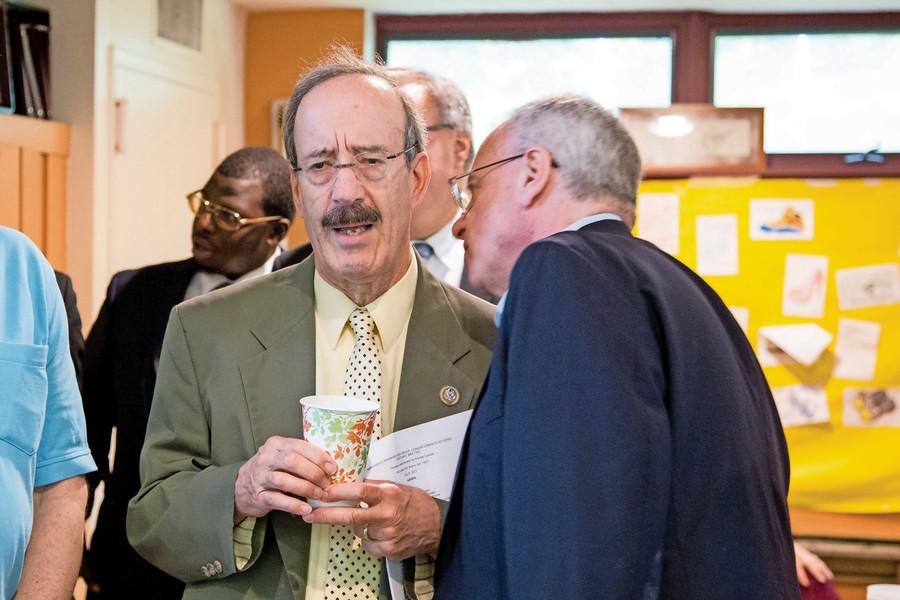Lawmakers recalled to Albany for special session
Senators and Assemblymen wearily left the Albany capitol building just before midnight June 21 in what was the official ending of the 2017-18 legislative session. Their respite was cut short, however, as Gov. Andrew Cuomo called the lawmakers back upstate June 28 for a special session.
One unresolved issue that will be taken to task in the extraordinary session is the long-debated mayoral control of the New York City school system.
Mayor Bill de Blasio’s power over the city’s vast school system expires June 30. The mayor has had to argue for one-year extensions since being elected to office, while his predecessor, Michael Bloomberg, was granted a lengthy seven-year mandate in 2002.
Charter schools are the main obstacle in renewing the law this year. In return for an extension of mayoral control, senate majority leader John Flanagan of Long Island wants de Blasio to extend the number of charter schools in the city.
There are six charter schools right now located in District 10, serving University Heights to North Riverdale. Though, citywide there are more than 200 public charter schools.
“It’s so appalling that any legislator would have the audacity to squeeze 1.1 million school kids to accomplish their own political goals,” Dinowitz told The Riverdale Press. “The kids should not be used as pawns, they should not be held hostage.”
State Sen. Jeffrey Klein believes the session is going to make a “clean extension with no strings attached,” expanding mayoral control for at least another year, if not two. Klein has worked to make small changes to mayoral control, introducing a bill giving parent organizations, like community education councils, more oversight over their own districts.
“I agree with them wholeheartedly,” Klein said. “I think they need to be much more engaged in the process.”
Notable legislation
The work this time around included 50 bills signed into law, and another 20 still awaiting Gov. Andrew Cuomo’s signature. In the final three days of the session alone, the two chambers passed 819 bills.
Until this year New York state allowed adolescents as young as 14 to legally marry. But a newly approved law, which takes effect mid-July, bans marriage for those under the age of 17.
“This is a major step forward in our efforts to protect children and prevent forced marriages,” Cuomo said in a statement after signing the bill into law.
New legislation also was passed regarding the MTA.
The first allow subway riders two free transfers with one Metrocard swipe. The other requires the testing of aboveground subway infrastructure for lead paint.
Both bills are currently sitting on Gov. Cuomo’s desk for his approval.
Another bill cracked down on landlords charging illegal non-rental fees. The law would force the state housing and community renewal division to disclose all of the items a landlord can force a rent-stabilized tenant to pay, like air-conditioning units.
The bill also is pending the governor’s approval.
One thing that didn’t get passed this time around was the Child Victims Act, which would extend the amount of time a victim of sexual abuse has to bring a criminal or civil case forward. Right now, a survivor only has five years from the time he or she turns 18 to confront their abusers.
The legislation also includes a controversial one-year look back window allowing victims to bring a case forward regardless of whether or not the statute of limitations had passed.
The bill passed the Assembly, but nothing ever came to a vote in the Senate.
“I don’t understand why the Republican leader doesn’t think that is an important issue to pass,” Dinowitz said.
Sen. Klein suspected there might be a second chance for the Child Victims Act to pass this year during a special session in November.
“These victims have waited long enough,” Klein said. “I’m hopeful we can get it done, move on, and let victims move on with their lives.”
While the session has not been called, lawmakers in Albany already suspect they’ll have to return to the state capital to deal with the ramifications of the federal budget, especially in terms of Medicaid cuts.
Governor’s absence
Cuomo has 21 bills sitting on his desk waiting for his signature. Although the main session is over, that number of bills could increase as lawmakers have until the end of the year to push legislation forward. Once a bill arrives on his desk, the governor has 10 days to either sign it into law or veto it entirely.
If he does nothing, it becomes law automatically.
But when the legislature is out of session, the rules are different. Cuomo would then have 30 days to respond to the bill. If he doesn’t, the bill is then vetoed.
“We never see everything we want to get done, done,” Dinowitz said. But he didn’t hesitate to point the finger at the governor, stating his absence at the capitol affected the efficiency of the state government.
After Cuomo’s budget passed in April, the governor was really nowhere to be found in Albany, Dinowitz said.
“The last I checked it takes the legislature and the governor to come to a deal,” he said. “It was a disappointing finish.”
Sen. Klein, however, argues that Cuomo was still actively engaged until the end of the session, even with a budget that met a lot of needs and requirements of the people.
“Remember, I’m not making excuses, but in this past budget we got a lot of very important things done,” he said.






